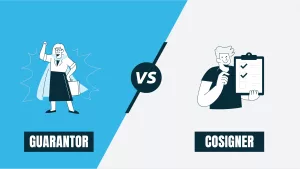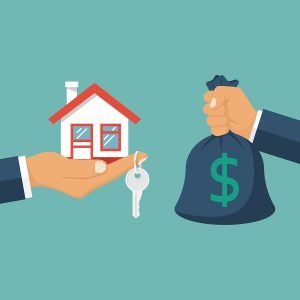What Should a Home Inspection include in New York
Go Back To Previous PageSo you’ve found your dream house or your forever home. The seller has accepted your offer, and you’re ready to move in at the end of the home-buying process. But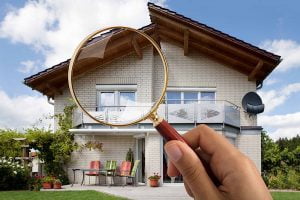 before you get the keys to your new house and sign on the dotted line, you must ensure your future larger home is in good working order or in perfect to excellent condition. It’s time for a home inspection in New York State.
before you get the keys to your new house and sign on the dotted line, you must ensure your future larger home is in good working order or in perfect to excellent condition. It’s time for a home inspection in New York State.
First things first: what is a home inspection in NYC, and what is the cost of a home inspection? A licensed inspector comes into your soon-to-be home with a home inspection checklist. It is part of the home-buying process.
This inspector searches for mechanical, structural, and electrical flaws. In other words, it represents an X-ray of the property. This inspection will highlight defects.
On the surface, your new home may look fine.
But it’s not like you’re checking the foundation or zoning in on the ancient plumbing. Some of us may be DIYers, but most of us are not. Can you tell if the wiring of your lights is up to code?
That’s where a home inspection comes in. A licensed home inspector will inspect your future home to identify potential problems. He will examine the foundation, structure, fixtures, plumbing, electrical systems, appliances, and other components.
For example, the foundation may have cracks, the plumbing may be outdated, and the dishwasher may be malfunctioning. If the inspector discovers any problems, this information is essential.
The inspector does not measure the square footage.
You, the buyer, can negotiate with the seller to fix any issues. If the seller refuses or has too many problems, you may opt out or reconsider buying the home.
Obtaining a professional home inspection is a crucial step in the home-buying process, and buyers cannot decide to purchase a home without one.
What is a House Inspection in New York?
A home inspection evaluates the structure of a house, townhouse, condo, or co-op.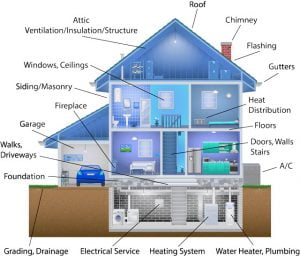 A certified home inspection professional performs the home inspection. His job is to reveal what’s not up to code in your house or what defects exist.
A certified home inspection professional performs the home inspection. His job is to reveal what’s not up to code in your house or what defects exist.
This professional walks through the home to identify problem areas that may require your attention before you move in.
What Does a Home Inspector Look For?
Inspection day! The inspector usually checks a home’s central systems and parts. They look for any problems that need quick fixes before moving in. The home inspector’s job doesn’t include uncovering every defect in the home.
They are more concerned with the more significant problems that make a home unsafe. An inspector will likely state that the air conditioning unit is too old and needs to be replaced. However, they will not mention the peeling wallpaper or chipped paint on the walls.
Is a Home inspection in New York mandatory in NYC?
First, this process is a small price to avoid a nasty surprise you may encounter later. For example, some buyers will make their offers “contingent on inspections,” given the cost of a home.
This means that their offer no longer applies if an inspection is unsatisfactory. However, most buyers will inspect the property after an offer is accepted to quickly analyze it before spending more time and money in the purchase process.
What to Expect From an Inspection Report
After examining the house’s interior and exterior, the inspector will create an official home inspection report that shows existing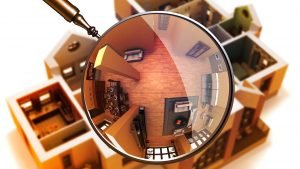 home defects. The report will list defective or hazardous items that could harm your health and include pictures as a visual aid. The inspector’s job is to provide you with a detailed report of the home inspection.
home defects. The report will list defective or hazardous items that could harm your health and include pictures as a visual aid. The inspector’s job is to provide you with a detailed report of the home inspection.
An inspector sends the report directly to you, most likely by email. You’re looking for what can raise your attention to potential hazards, damages, or issues so that you can identify the problem areas. If one of those things is missing, your inspector’s report remains incomplete.
Therefore, read the report back-to-back and with a scrupulous eye before you start negotiating.
Ask questions
If there’s some technical jargon you don’t understand, the home inspector is there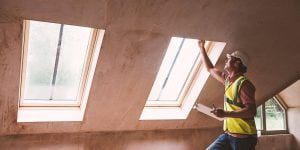 to respond to your questions and concerns. This is part of the inspector’s job.
to respond to your questions and concerns. This is part of the inspector’s job.
Your real estate attorney should also understand the report, as it’s their job to help you negotiate your sales contract.
Attend the Home Inspection in New York in person.
You can walk through the house during the inspection with your inspector. Home inspectors encourage buyers and their real estate agents to attend the inspection to discuss the findings in person and ask questions. Since a visual inspection will make things more straightforward, shadowing the inspector is always a good idea.
Once you understand the report, you’ll have more buying power. The results of an inspection can help you decide whether to move forward with your purchase, and you can also use these results as a bargaining tool with the seller. If the house has been well-maintained, you should proceed with closing on the home.
Leverage the issues
If it isn’t, you should become a savvy negotiator. It would be helpful if you used all the problem areas as leverage to negotiate a lower price for the house with the seller. Alternatively, you or your agent can convince the seller to repair all components that are not in good working order, which can cost thousands.
If structural damage or a broken water heater becomes pricey, the seller may not want to pay for the repairs and sell the home as-is.
When you have to make these expensive repairs and can’t afford them, you can walk away from the deal without penalty. If your contract includes a home inspection contingency, you can exercise it.
A home inspection contingency
A home inspection contingency is a clause added to a real estate contract when a buyer makes an offer on a home. The offer to buy is contingent on the home inspection results. This means the prospective buyer can negotiate the repairs with the seller based on the inspection report results or cancel the sale outright.
How much does a home inspection cost in New York? Who Pays for a Home Inspection in New York?
The buyer pays for the home inspection. First-time buyers are sometimes surprised to learn that they must pay for a home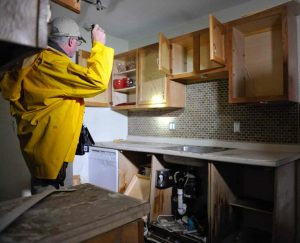 inspection and that the seller is not entirely responsible.
inspection and that the seller is not entirely responsible.
The buyer must hire the inspector. They should ensure that inspections are completed on time. They are also responsible for paying the cost.
How much does a home inspection cost? It depends on the size. While fees can vary depending on a home’s location, size, and age, the average cost for a home inspection ranges from $300 to $900.
However, remember what the inspector doesn’t test but needs to if you want your new house to be in tip-top shape. We’ll review what’s excluded and inform you about the specialist you need to hire.
Where to Find a Professional Home Inspector in New York
Find a home inspector? Your real estate agent is your best bet; they have all the contacts and represent your best interests. However, use a certified home inspector since an inspection is integral to buying a home.
If friends or your agent don’t recommend an inspector, or if you want to research your own, use ASHI’s home inspector search tool or NACHI’s list of certified home inspectors in New York. Using these organizations will allow you to gauge the inspector’s experience before calling them, saving you time. The International Association of Certified Home Inspectors is also a good resource.
What a Home Inspection Includes in New York
Note that there’s no standard inspection report. A condo differs from a co-op, and a house differs from a townhouse. Since all possible dwellings are separate, the inspector will provide a report highlighting problem areas that another report may not address.
If this is your first time buying a house and having an inspector examine it, you won’t know what an inspector inspects and what an inspector doesn’t inspect.
Inspections will vary. However, there are minimum standards of what an inspection entails. The American Society of Home Inspectors (ASHI) has outlined standards and a home inspection checklist that includes the following conditions:
- The home’s heating system
- Central A/C system (temperature permitting) or the HVAC system
- interior plumbing and electrical systems
- the roof
- attic and visible insulation
- walls and ceilings
- floors, windows, and doors
- the foundation
- basement and structural components
Detailed home inspection checklist
- Pest control
- Swimming pools
- Asbestos
- Radon gas
- Lead paint
- Toxic mold
The consensus on what the inspector is hired to check includes the following home inspection checklist:
- Foundation and basement
- Any additional structural components
- Interior plumbing systems
- Heating and cooling systems
- Interior electrical systems
- Condition of windows, doors, and door frames
- The attic and any visible insulation
- Major appliances
- Condition of floors, walls, ceilings, and stairs
- Trees around the property (if applicable)
- Examination of the exterior of the house (if applicable)
What Doesn’t a Home Inspection Include?
A home inspection can reveal a great deal about the house you plan to buy, but only if the components are readily and easily accessible. If you are unsure what a home inspection does not cover, check with the American Society of Home Inspectors. They can help you find the specific requirements for your area.
In New York City, the following are typically not included in a professional home inspection or are examined only superficially.
Water Safety issue
Inspectors generally do not test water from a municipal water system or a public well. However, a home inspector might do this in your co-op to check the water pressure and temperature to ensure the water heater works properly.
The inspector will not take water samples to have them tested for harmful microbes or toxic metals. But if you live in the suburbs or any rural area, the inspector will perform the testing,
Radon
Inspectors do not test radon, although it represents a high risk in many states. Radon is a naturally occurring carcinogenic gas that emanates from radioactive materials like uranium within the earth.
Roofs
Depending on the type of structure, the roof may not get tested. Of course, if you live in an apartment building, you won’t have to worry about this. Inspectors only address structures with flat roofs that are easily accessible. However, homes with pitched roofs are not typically inspected, even though they often require the most attention.
If the task puts the inspector in peril, it is not tested. Since a pitched roof requires a safety harness and a ladder for inspection, you may have to hire a roof specialist. Without a ladder, an inspector will only inspect visible issues from the ground, including visual and apparent damage or missing shingles.
Chimneys or Fireplaces
Inspectors will inspect chimneys, but only on a fundamental level. That means all they can do is shine a flashlight up the chimney. They ensure that there is no obstruction and that the damper switches are functioning correctly.
Therefore, you must hire a fireplace or chimney specialist to inspect thoroughly. This is an added cost, but if you use your fireplace regularly, you’ll need to hire professionals to inspect and clean it at least once a year or as required.
Mold
You may have mold if there’s water damage or if the house lacks proper waterproofing in areas like the bathroom and kitchen, where moist areas are prone to occur. Mold is another thing you need to test on your own. It would be best if you didn’t opt out, as mold can cause many health issues for homeowners and their families.
Asbestos/Lead
In the past, builders used asbestos and lead for insulation in homes. Unfortunately, if your home was built in the 1980s, it may contain asbestos or lead-containing materials.
Now that we know asbestos and lead can affect your health, have your home tested for these substances. An inspector will not do it, and you may have to pay more money for the testing.
Pests
Some home inspectors test for pests. But not all of them are licensed to do that. If so, you must hire another professional to prevent an infestation.
Pests include termites and flying beetles. If you see droppings, they may not be from mice but signs of wood-boring insects.
Is a Home Inspection Necessary?
No law requires a buyer or a seller to conduct an inspection when purchasing or selling any home. However, a home inspection will provide you with a clear picture of what you’re getting into. It’s essential to consider all the hidden costs (i.e., the expenses that an inspector may not or can’t see) required to repair, renovate, or replace any significant or minor structure.
As suggested, you will have more negotiating power when you finalize the sales contract.
When Does the Home Inspection Take Place in New York?
The buyer’s inspection should happen after the buyer makes an offer to the seller and accepts the terms. However, it happens before signing the sales contract. Some home buyers choose to inspect the home after signing the contract.
However, this is not advisable as it can extend the in-contract term limit, as further negotiations may become drawn out. This may also mean that attorneys need to redraft the sales contract.
Thus, complete the inspection before the sales contract is signed, so that all major negotiations can occur before the contract is finalized.
However, note that a second inspection may be necessary if the seller has agreed to repair or renovate parts of the dwelling before closing.
What Happens Once All Inspections Are Completed?
Buying a home may be the most expensive thing you’ll ever purchase. Thus, getting the home inspected should be a priority, regardless of how many additional professionals you may need to hire in addition to the certified home inspector. And in the end, it’s worth every penny to avoid costly problems that can arise after buying a home.
So, what happens once you complete all inspections? Closing time! After you receive the inspector’s official report and take care of all the problems, you can finally sign on the dotted line and become the new homeowner of a house.
Who pays for the home inspection in NYC?
The buyer typically schedules it. Prices vary (usually range between $300 and $900), but this is not the place to go for the cheapest option. The inspection remains crucial to determining the unit’s condition, and a professional and reliable study becomes necessary—the best way to find someone is through referrals and recommendations. In summary, get a licensed and qualified inspector.
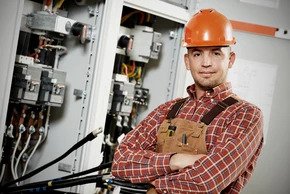 We recommend our clients attend the inspection. Even though inspectors are professionals and will perform their job correctly, they are not emotionally invested in the property and may overlook specific details. Your presence will add value.
We recommend our clients attend the inspection. Even though inspectors are professionals and will perform their job correctly, they are not emotionally invested in the property and may overlook specific details. Your presence will add value.
The inspector’s report will highlight all deficiencies.
First, not every apartment will be perfect, so focusing on red flags is crucial. However, distinguishing between issues to fix and significant faults is essential. You can discuss these major flaws with the seller to reduce the sale price.
You can also address them before closing.
They don’t necessarily mean the deal is off. When you are ready to start reviewing listings, you will understand the benefits of a home inspection in NYC.

